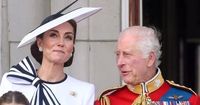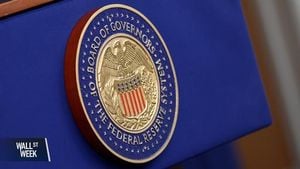King Charles III made headlines this week with a candid admission about aging, but it’s the swirl of controversy around his health and the COVID-19 vaccine that’s truly dominating discussion in the UK and beyond. On September 3, 2025, the King officially opened the Midland Metropolitan University Hospital in Smethwick—a state-of-the-art, 736-bed facility. During his visit, he mingled with patients, staff, and volunteers, offering lighthearted banter and heartfelt apologies for his earlier absence due to cancer treatment.
Speaking to 85-year-old patient Jacqueline Page, who confided that she was “wearing out,” Charles responded with characteristic humor: “This is the terrible thing, as I am discovering already. The bits don't work so well when you get past 70.” The King’s self-deprecating remark drew smiles and nods from those present, a brief moment of levity amid the more serious undertones of his recent health challenges.
But while the King’s visit was intended to spotlight the new hospital and his ongoing recovery, the conversation surrounding his diagnosis—and that of his daughter-in-law, the Princess of Wales, Kate Middleton—has taken a sharp and divisive turn. In 2024, both royals revealed they were undergoing treatment for cancer, a revelation that prompted widespread concern and sympathy. However, as their recoveries progressed, a new and highly controversial narrative began to emerge, fueled by figures on the fringes of the medical and political establishment.
At the center of this furor is Dr. Aseem Malhotra, a British cardiologist known for his outspoken criticism of the COVID-19 mRNA vaccine. Malhotra, who advises Robert F. Kennedy Jr.’s activist group MAHA Action, has repeatedly claimed that the vaccine could be linked to the cancers diagnosed in King Charles and Kate Middleton. During a scheduled speech at the Reform Party’s annual conference in Birmingham on September 6, 2025, Malhotra was expected to declare, “We have several published mechanisms of how the mRNA vaccine can increase the risk of cancer confirmed by… Steven Hatfill. This is also supported by one of Britain’s most eminent oncologists, Angus Dalgleish, who is happy for me to share today that he believes it is highly likely members of the Royal Family developed cancer because of the COVID jab.”
Malhotra’s assertions, however, have been widely discredited by mainstream medical authorities. The Centers for Disease Control and Prevention (CDC), the U.S. Food and Drug Administration (FDA), and the National Cancer Institute (NCI) have all stated unequivocally that there is no evidence COVID-19 vaccines cause cancer or increase the risk of developing cancer. According to their statements, the vaccines have undergone rigorous safety evaluations, and no credible data links them to cancer incidence or progression.
Despite these assurances, Malhotra’s claims have gained traction in certain circles, in part because of his association with prominent political figures. He is closely linked to Robert F. Kennedy Jr., the U.S. Health Secretary known for his anti-vaccine stance, and has been embraced by the Reform Party, led by Nigel Farage—a key figure in the Brexit campaign and a close ally of former U.S. President Donald Trump. Farage’s support has given Malhotra’s views a platform at high-profile events, even as mainstream experts warn that such rhetoric can be dangerously misleading.
Malhotra’s arguments often reference a 2025 paper by Paul Marik and Justus Hope, published in the Journal of Independent Medicine, entitled ‘COVID-19 mRNA-Induced “Turbo Cancers.”’ The review, however, has been criticized by oncology and vaccine-safety experts for relying on anecdotes and speculative mechanisms rather than robust, population-level evidence. “The review assembles anecdotes and speculative mechanisms but doesn’t produce population-level evidence that COVID mRNA vaccines cause or accelerate cancer,” experts have noted, according to The Daily Beast.
Steven Hatfill, a senior adviser in the U.S. Department of Health and Human Services, has also promoted similar views, warning against the mRNA vaccines despite a lack of supporting evidence. Hatfill’s reputation as a controversial figure dates back to the early days of the pandemic, when he advocated for the use of hydroxychloroquine to treat COVID-19—a position that was ultimately refuted by multiple studies and the FDA, which found the drug ineffective and potentially harmful.
Angus Dalgleish, emeritus professor of oncology at the University of London, has added his voice to the debate, suggesting that mRNA boosters could drive rapid cancer progression. Dalgleish’s beliefs, like those of Malhotra and Hatfill, have been repeatedly debunked by the broader medical community. Nevertheless, when approached by The Daily Beast for comment, Dalgleish stated: “[While] we do not know that Charles and Kate’s unexpected cancers were caused by the vaccines, as they both presented with benign conditions… it is highly likely.” His statement, though hedged, has been seized upon by vaccine skeptics as further “evidence” of their claims.
The political backdrop to this controversy is equally charged. Malhotra has alleged that both RFK Jr. and the Trump administration intend to ban the COVID mRNA vaccine in the coming months. He told The Daily Beast last month that, having made the vaccine available only to the medically vulnerable and those over 65, the next step would be to pull it from the market altogether. Malhotra claims there is support for this move within the Trump administration and among members of Trump’s family, though neither Kennedy nor Trump’s associates possess medical qualifications.
These developments have not gone unnoticed by public health officials. Following reports of plans to remove the vaccine from the market, a wave of departures from the CDC was observed, reportedly in response to Kennedy’s vaccine policy. Former President Trump subsequently challenged drug companies to “prove that their COVID jabs worked,” further fueling public debate and uncertainty.
When asked for comment, White House spokesman Kush Desai was quick to distance the current administration from Malhotra’s statements. “This individual is not a member of the Administration, and does not represent the Administration’s thinking or planning. The Daily Beast should expend its obviously limited capabilities on trying to accurately cover the people who actually can speak on behalf of the Administration.”
Meanwhile, Buckingham Palace and Kensington Palace have declined to comment on the controversy, focusing instead on the King’s ongoing recovery and public engagements. The royal family’s silence has not quelled speculation, but for many, the King’s own words during his hospital visit—equal parts humor and humility—speak louder than any rumor or conspiracy theory.
As the debate over vaccine safety and royal health continues, the facts remain clear: credible medical organizations maintain that COVID-19 vaccines are safe and effective, and no scientific evidence links them to cancer. The conversation, however, is far from over—reflecting the deep divides and anxieties that have characterized the pandemic era and its aftermath.




